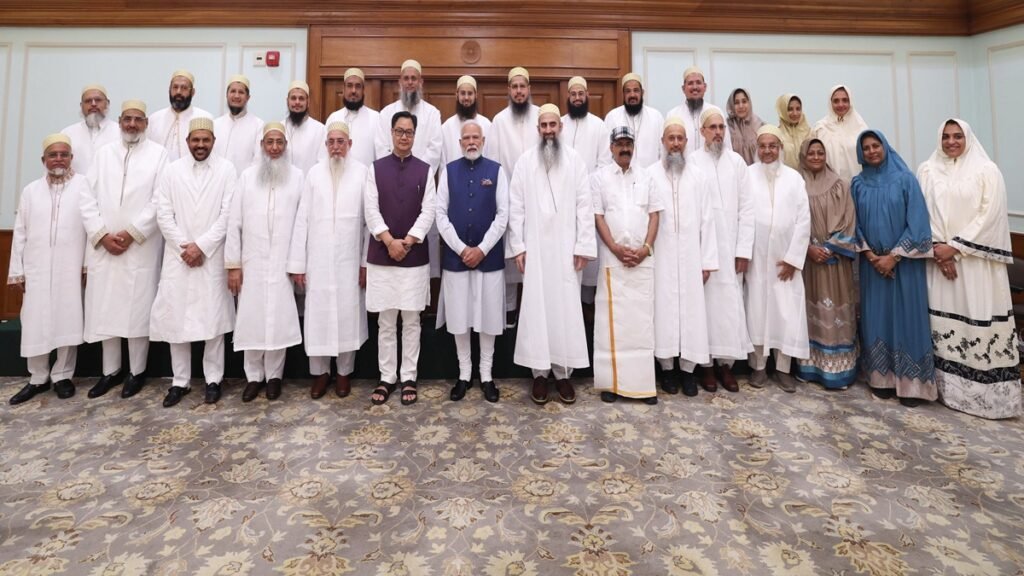Centre assured the Supreme Court that key provisions of the Waqf (Amendment) Act, 2025, including the inclusion of non-Muslims in the Central Waqf Council and Waqf Boards and provisions on de-notifying Waqf properties, will not be given effect to for some time.
A delegation from the Dawoodi Bohra community met Prime Minister Narendra Modi on Thursday (April 17) to express their gratitude for the recently enacted Waqf (Amendment) Act, 2025, calling it a long-pending demand of the community. They said that it was a long-pending demand of the community. They reposed faith in PM’s vision of ‘Sabka Saath, Sabka Vikas, Sabka Vishwas’.
Who are Dawoodi Bohras?
The Dawoodi Bohras are a Muslim community primarily from West India, with members settled in over 40 countries worldwide. The Dawoodi Bohra community traces its heritage to the Fatimid Imams, direct descendants of the Prophet Muhammad, in Egypt. The Dawoodi Bohras throughout the world are guided by their leader known as the al-dai al-mutlaq (unrestricted missionary), who first operated from Yemen and then, for the last 450 years, from India.
Earlier today, the Supreme Court took note of the Solicitor General’s assurance that no appointments to the Waqf Board or Council will be made until the next hearing. The court also stated that existing Waqf properties, including those registered by the user or declared through notification, will not be identified. The Solicitor General said that the Waqf Act is a considered piece of legislation and that the Centre has received a large number of representations regarding the classification of land as Waqf. He added that staying the entire Act would be a severe step and sought one week to submit a reply.
The Supreme Court stated that it had earlier noted some aspects of the legislation as positive and reiterated that there can be no complete stay of the Act at this stage. The court also said that it does not want the current status to be altered while the matter is under its consideration. The bench reiterated that the objective is to maintain the existing situation without changes while the matter remains under judicial review. Several petitions were filed in the apex court challenging the Act, contending that it was discriminatory towards the Muslim community and violated their fundamental rights. President Droupadi Murmu gave her assent to the Waqf (Amendment) Bill, 2025, on April 5, following its passage by Parliament after heated debates in both Houses.
Meanwhile, West Bengal Chief Minister Mamata Banerjee appealed to Governor CV Ananda Bose today to defer his visit to the violence-hit Murshidabad to a later date after the confidence of people and normalcy is restored in the region. She said that she has announced her policy on providing compensation to the victims after three people were killed in the recent violence sparked by protests against the Waqf (Amendment) Act.
